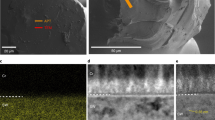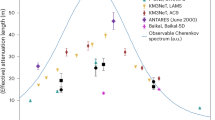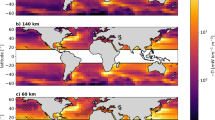Abstract
A SERIES of communications has appeared in Nature under the above title. We would like to discuss in particular those by de Turville1,2, who has proposed that the oceans have resulted from the accretion of solar protons, and that by Frith2, who summarized recent data on stratospheric water-vapour content and showed that this substantiated the hypothesis of de Turville. We will discuss three main points and cite several others, the combination of which seems to indicate that no more than a minor fraction of the water present in the world's oceans has resulted from the accretion of protons from the solar wind. Our main points are these: (1) The solar wind has been measured, and the flux is a factor 10 lower than that used by de Turville in his first communication, and a factor 100 lower than the value used in his second communication. (2) de Turville fails to consider the possibility of escape of hydrogen from the exosphere, which, even if his other assumptions were correct, means that his accretion value is only an upper limit. (3) The observed increase in the water-vapour mixing ratio in the stratosphere cited by Frith does not necessarily mean that the water is of extra-terrestrial origin. There is evidence of large-scale vertical exchange processes in the polar winter stratosphere which can transport the moisture aloft.
This is a preview of subscription content, access via your institution
Access options
Subscribe to this journal
Receive 51 print issues and online access
$199.00 per year
only $3.90 per issue
Buy this article
- Purchase on Springer Link
- Instant access to full article PDF
Prices may be subject to local taxes which are calculated during checkout
Similar content being viewed by others
References
de Turville, C. M., Nature, 190, 156 (1961).
Frith, R., Harrison, E. R., and de Turville, C. M., Nature, 191, 1182 (1961).
Gringauz, K. I., Bezrukikh, V. V., Ozerov, V. D., and Rybchinskii, R. E., Iskusstvennye sputnike zemli No. 6, Izd. Akad. Nauk S.S.S.R., Moscow (1961). See also Dokl. Akad. Nauk, S.S.S.R., 131, 1301 (1960).
Bridge, H. S., Dilworth, C., Lazarus, A. J., Lyon, E. F., Rossi, B., and Scherb, F., paper given at Intern. Conf. Cosmic Rays and the Earth Storm, Kyoto, Japan, September 4–15, 1961 (to be published in the Proceedings of the Conference).
Van Allen, J. A., Bull. Amer. Phys. Soc., II, 6, 276 (1961).
Damon, P. E., and Kulp, J. L., Geochim. et Cosmochim. Acta, 13, 280 (1958).
Mastenbrook, H. J., and Dinger, J. H., NRL-Rep. No. 5551 (1960).
Kalkstein, M. I., Science (in the press).
Urey, H. C., The Planets (Yale Univ. Press, New Haven, 1952).
Rankama, K., Geol. Soc. Amer. Spec. Paper No. 62, 651 (1955). Rubey, W. W., ibid., 631.
Author information
Authors and Affiliations
Rights and permissions
About this article
Cite this article
WASSON, J., JUNGE, C. Terrestrial Accretion from the Solar Wind. Nature 194, 41–42 (1962). https://doi.org/10.1038/194041a0
Issue Date:
DOI: https://doi.org/10.1038/194041a0
This article is cited by
-
Weather and the Earth's magnetic field
Nature (1974)
Comments
By submitting a comment you agree to abide by our Terms and Community Guidelines. If you find something abusive or that does not comply with our terms or guidelines please flag it as inappropriate.



